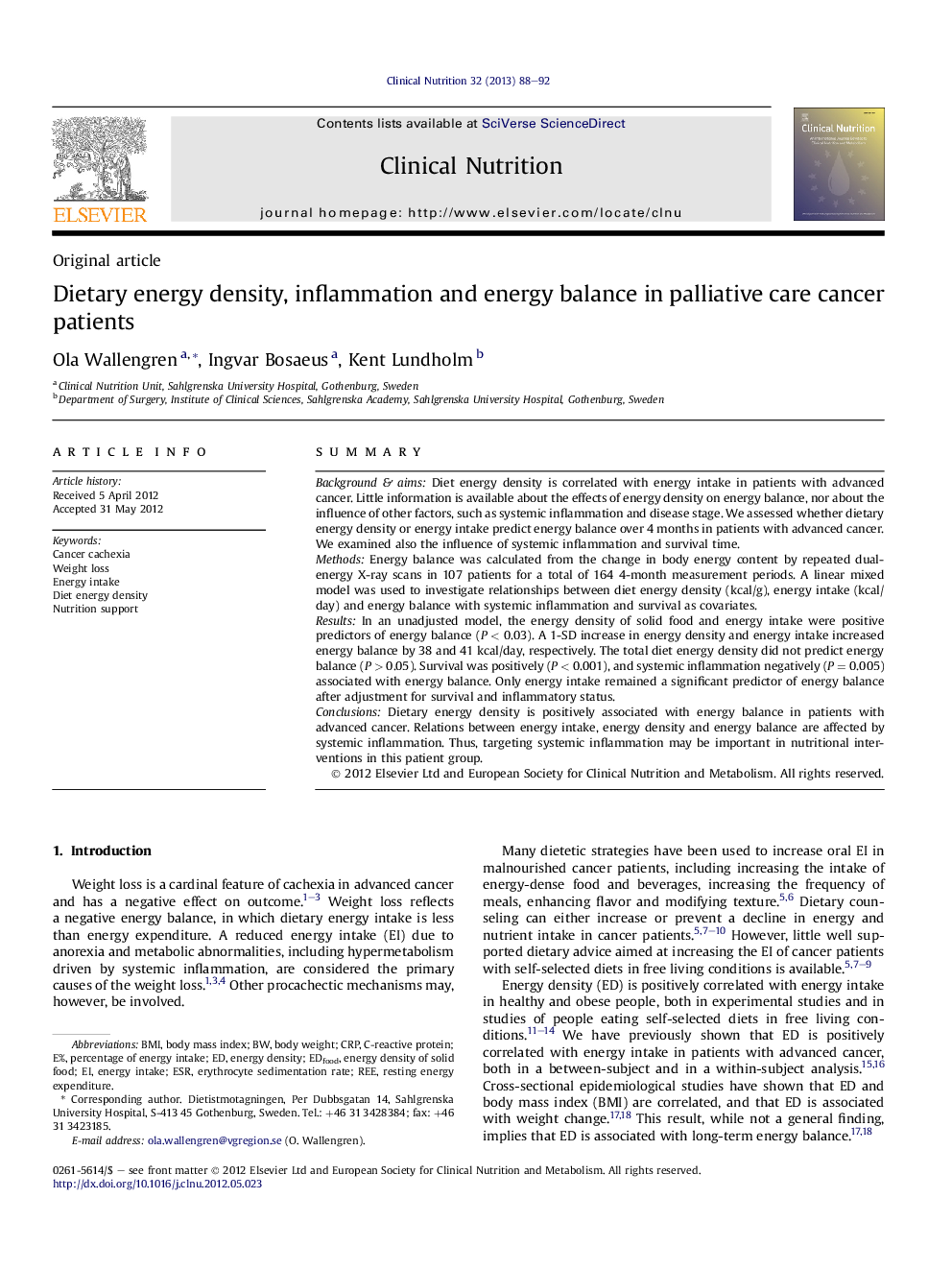| Article ID | Journal | Published Year | Pages | File Type |
|---|---|---|---|---|
| 2687035 | Clinical Nutrition | 2013 | 5 Pages |
SummaryBackground & aimsDiet energy density is correlated with energy intake in patients with advanced cancer. Little information is available about the effects of energy density on energy balance, nor about the influence of other factors, such as systemic inflammation and disease stage. We assessed whether dietary energy density or energy intake predict energy balance over 4 months in patients with advanced cancer. We examined also the influence of systemic inflammation and survival time.MethodsEnergy balance was calculated from the change in body energy content by repeated dual-energy X-ray scans in 107 patients for a total of 164 4-month measurement periods. A linear mixed model was used to investigate relationships between diet energy density (kcal/g), energy intake (kcal/day) and energy balance with systemic inflammation and survival as covariates.ResultsIn an unadjusted model, the energy density of solid food and energy intake were positive predictors of energy balance (P < 0.03). A 1-SD increase in energy density and energy intake increased energy balance by 38 and 41 kcal/day, respectively. The total diet energy density did not predict energy balance (P > 0.05). Survival was positively (P < 0.001), and systemic inflammation negatively (P = 0.005) associated with energy balance. Only energy intake remained a significant predictor of energy balance after adjustment for survival and inflammatory status.ConclusionsDietary energy density is positively associated with energy balance in patients with advanced cancer. Relations between energy intake, energy density and energy balance are affected by systemic inflammation. Thus, targeting systemic inflammation may be important in nutritional interventions in this patient group.
